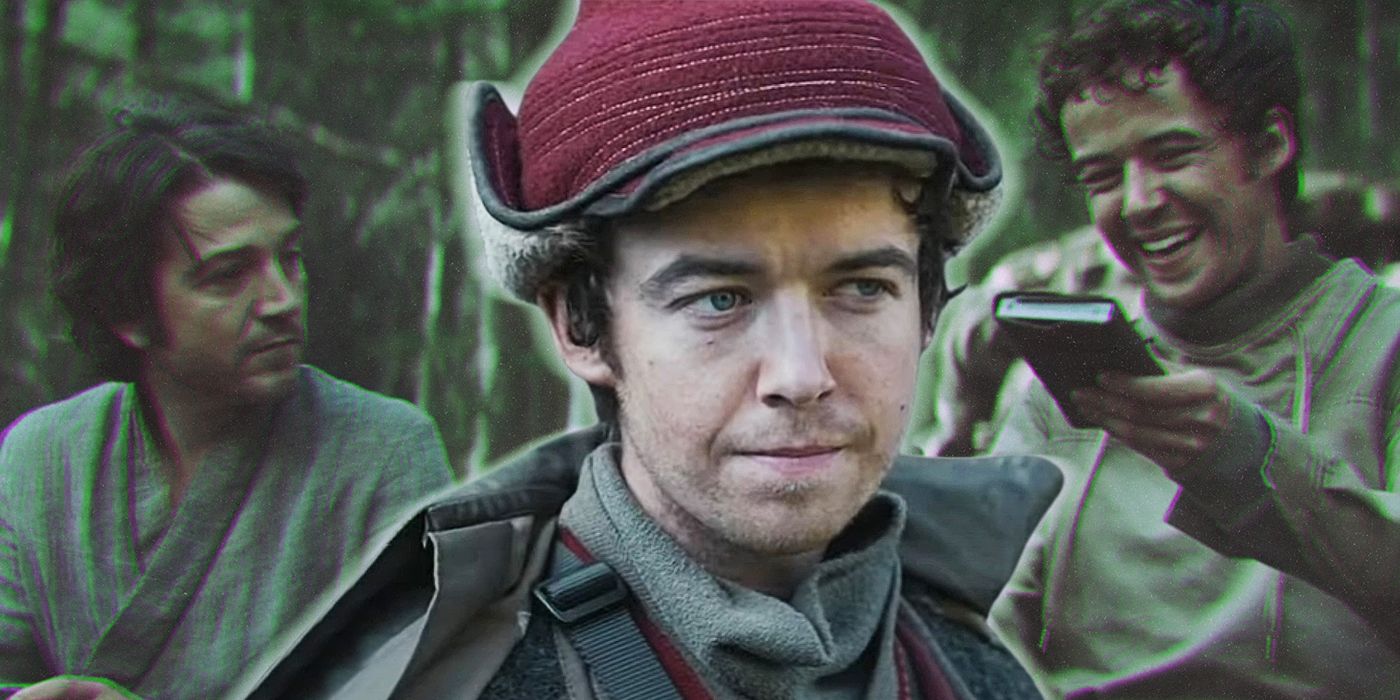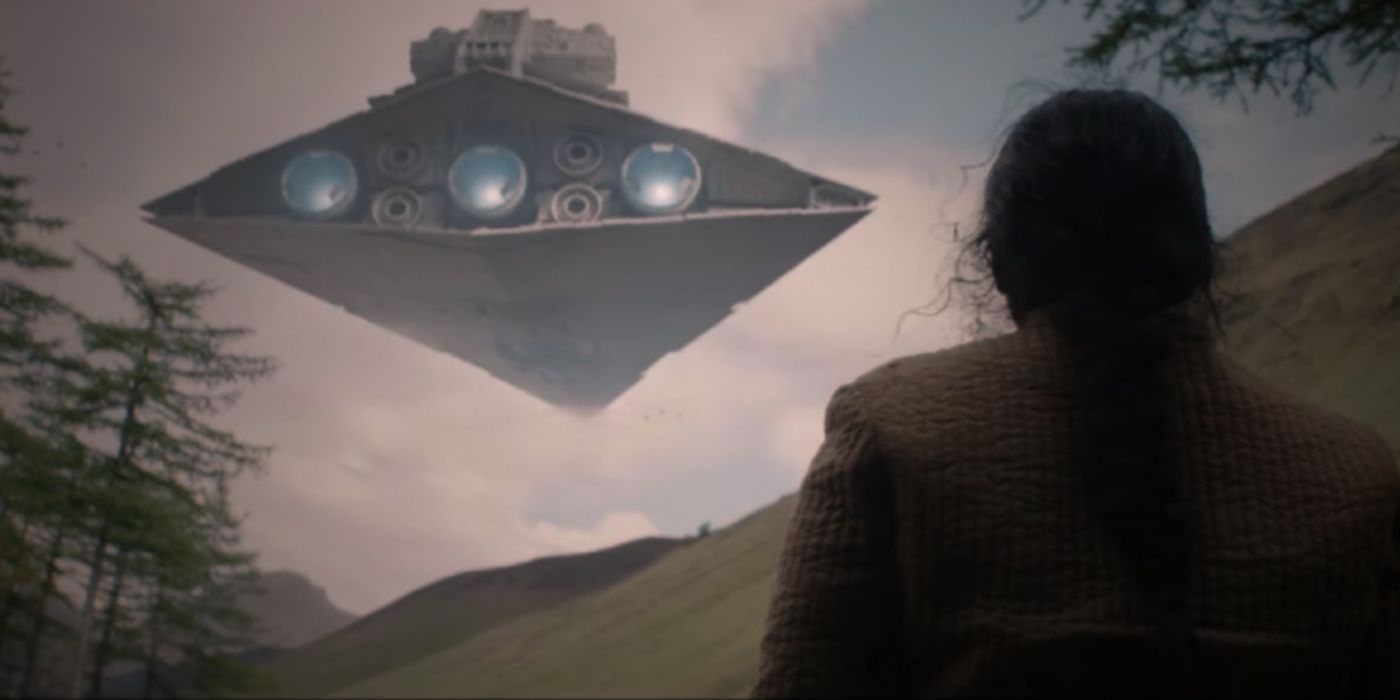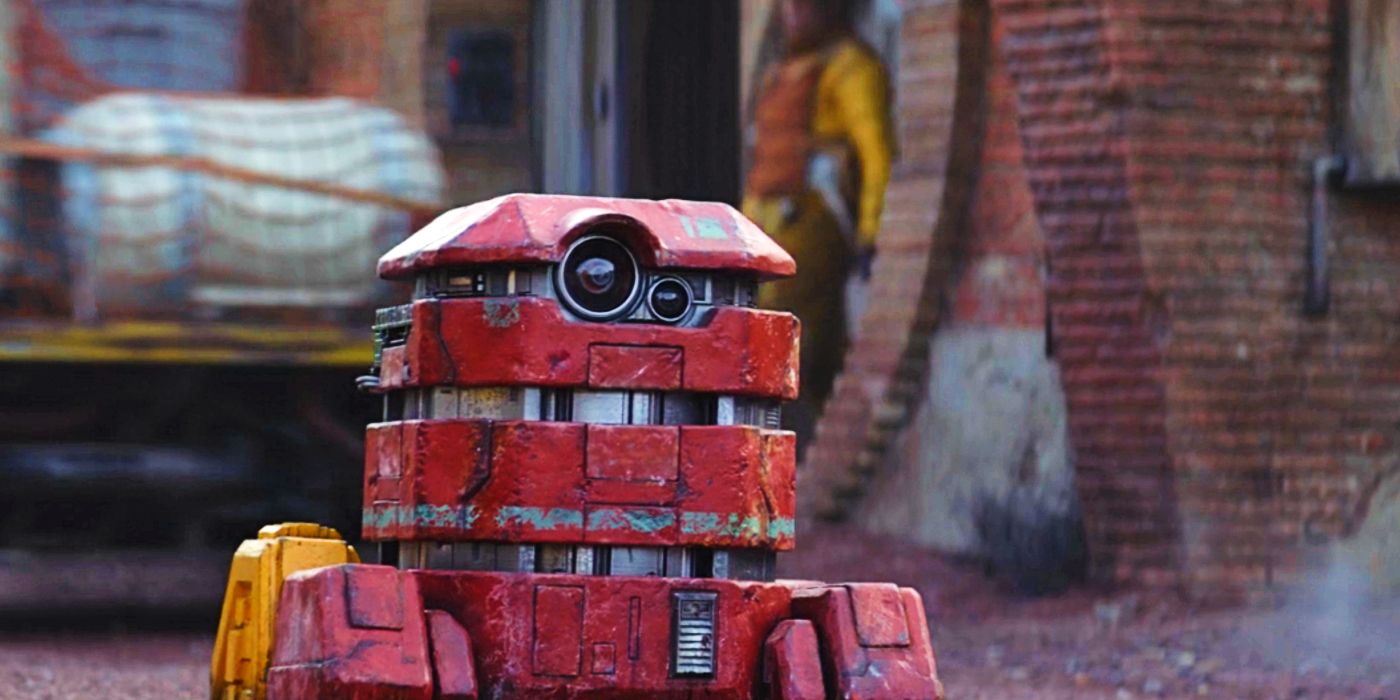The following contains spoilers for Andor Season 1, which is now streaming on Disney+.
Andor is perhaps the single most political piece of Star Wars content since Rose Tico wanted to put her fist through the town of Canto Bight in Star Wars: The Last Jedi. Of course, the Star Wars franchise has always been political as its storylines consistently center around an armed rebellion against an oppressive government system.
After the Star Wars prequels, fans wondered how the entire galaxy could seemingly forget the Jedi existed in just 19 years. Andor reminds fans that erasing what existed before is the first thing despotic, tyrannical conquerors do. The aphorism that gives the episode Nemik's manifesto is first introduced "the axe forgets, but the tree remembers," is as explicit a counterargument as the show can offer without the actors and writers directly addressing the camera. The "Rebel Manifesto" in Andor, however, is strung together by the various characters in a way that's reminiscent of how real-life empires make their citizens forget there was ever a time before it existed.
The Empire's Greatest Weapon Is the 'Pace of Oppression'
In Andor, one example of the Empire erasing history is stated most explicitly in a scene where Karis Nemik talks about an astral navigation device. The device is like the Millennium Falcon -- a relic of an older time that is eminently repairable, but is now so rare that knowing how to use it properly is like a superpower. It is stated less implicitly in the scene where Vel Sartha reveals why Lieutenant Gorn is helping the Rebels. Apparently, the Empire committed a little genocide on the planet, including murdering an indigenous woman Gorn loved.
The evidence of this society's existence -- that once numbered in the thousands -- are the odd ruins adorned with Imperial detritus. This is also an example of the Empire strip mining a planet until its unlivable. In places where the Empire doesn't do this, however, they are still able to erase the institutional and cultural memories of whole societies. Cassian then learns that the speed at which oppressors make changes outpaces people's ability to truly comprehend what that means. Before people can even process changes to political norms or incremental restrictions of their rights, there are four or five new things announced. Citizens, journalists and even other political figures don't have time to put those actions in context before they're on to the next unprecedented thing.
Another way Andor underscores how this works in practice is through the disparate settings for the various rebels in the show. While Luthen's cell sleeps in hammocks in ruined cabins, Mon Mothma and the citizens on Coruscant seem to be enjoying lives of, at least, physical comfort. Mon Mothma is aware of the pressure of the heavy hand of the Empire, but her husband and daughter are blissfully unaware. A decade since the Republic fell, the only truly successful Rebel operation is The Path from the Obi-Wan Kenobi series. The Empire moves quickly, and the Rebels are struggling to keep up. By erasing evidence of a time before it existed, the people eventually accept the notion that the Empire is the natural state of things.
Capitalism Helps Imperials Trap People Into Relying on It
In the first episodes of Andor, the Imperials were not the antagonists. Rather, private security for a corporation in control of an entire "sector" was the law. Chief Hyne had it right in the first episode when he told Syril Karn to not call attention to Cassian's semi-accidental murder of two officers. He knew that Karn would bungle the investigation, and his failure would bring down the Empire. Later, Cassian's Rebel nemesis Arvel Skeen tells him a version of that same story: his brother had a business and the Empire took it. He was, however, just a farmer, so the Empire just took it, pushing him to commit suicide. Those not in the Empire's direct path, however, can find themselves dependent on the Empire.
Nemik tells Andor that people are too reliant on Imperial technology, meaning that any effective attempt to fight them would need to use their own infrastructure. Andor explains why the Rebel Alliance always has janky ships and hand-me-down bases: they can't out-build the Empire. As such, they hide from them because the Empire is so effective at making people forget what came before. This effectively allows the Empire to track everything, thus cementing their place as outer space tyrannical conquerors.
Find out what other hidden wonders from the galaxy's past are found in the first season of Andor, now available to stream on Disney+.



